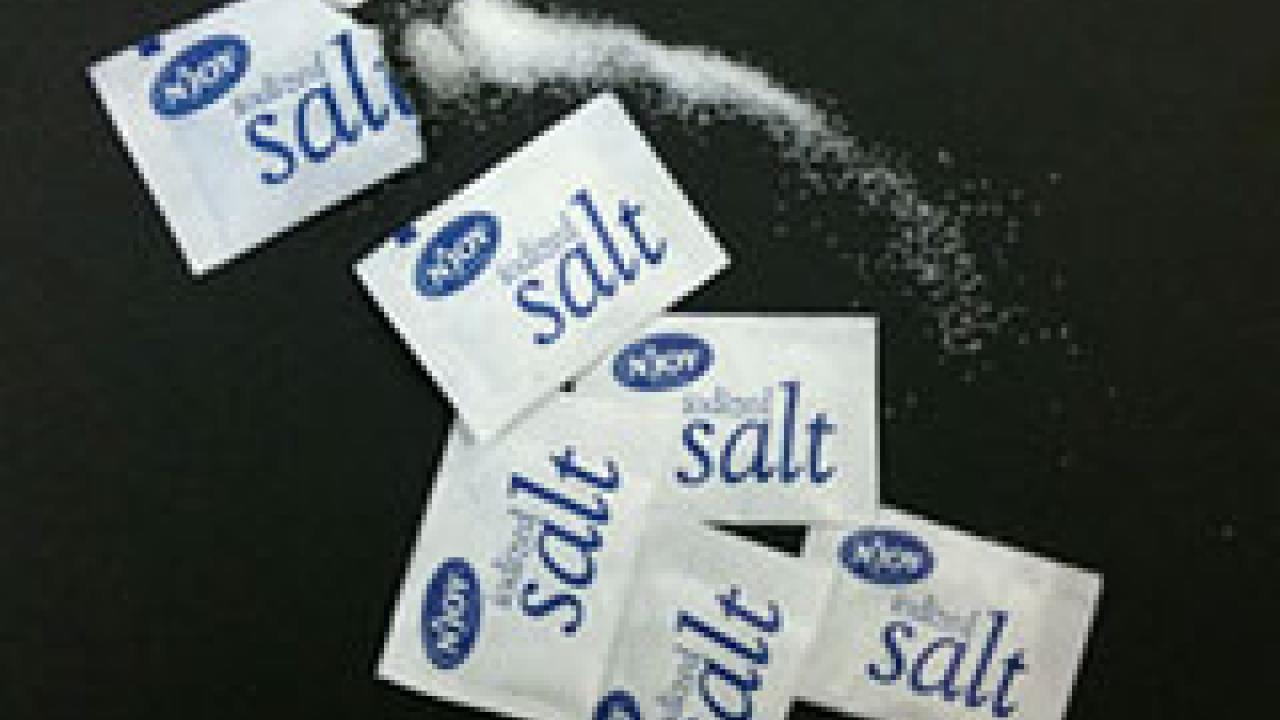A new study showing that sodium consumption in the United States has remained unchanged for more than 40 years provides further evidence that federal efforts to reduce salt intake are both futile and unnecessary, three health researchers argue in the November issue of the American Journal of Clinical Nutrition.
The authors, including David McCarron, a physician and adjunct professor in nutrition at the University of California, Davis, commented on a study published in the same issue by Adam Bernstein and Walter Willett of the Harvard School of Public Health.
“The Harvard paper defines a narrow range of human sodium intake over nearly 50 years in the U.S.,” McCarron said. “Combined with our findings, published in 2009, these data should close the debate on whether there should be a recommended level of salt intake for the general population.
“Public policy should not try to trump human physiology,” he said. “Any attempts to do so through well-intended strategies directed at the society at large, such as mandatory sodium labeling of food products and extensive educational and social marketing efforts, are not going to change an intake pattern that reflects human biology. Such efforts also carry potentially substantial risks.”
Writing the editorial with McCarron, were Tilman Drüeke, a physician and nephrologist at France’s Institut National de la Santé et de la Recherche Médicale (National Institute of Health and Medical Research), and Edward Stricker, a professor and emeritus chair of neurosciences at the University of Pittsburgh.
About the Harvard study
In an effort to obtain a long-term picture of sodium intake in the U.S., the Harvard researchers analyzed data from 38 studies that were conducted between 1957 and 2003 that included more than 26,000 participants. In each study, participants’ sodium intake was monitored by recording levels of sodium in the urine -- a method considered to be the most accurate indicator of sodium consumption.
After evaluating data from all 38 studies spanning four decades, the Harvard researchers found no significant change in urinary sodium. There was no indication that sodium consumption increased over that time, and the researchers estimated that the mean sodium intake from 1957 to 2003 remained relatively constant at 3,700 milligrams per day.
Current federal dietary guidelines for salt consumption advise that adults should consume no more than 2,300 mgs (about one teaspoon) per day and individuals at risk for high blood pressure should keep their sodium intake at or below 1,500 mgs. Such levels are dramatically lower than the published data indicate are normal for healthy humans.
Salt guidelines expected to be more restrictive
Despite the recent findings on salt consumption, McCarron and colleagues note that it is anticipated that the 2010 U.S. Dietary Guidelines are expected to set the safe upper limit for all individuals, regardless of health status, at 1,500 mgs. That is less than 40 percent of the average intake.
In their editorial, McCarron, Drüeke and Stricker emphasize that public policy efforts in the U.S. during the past 30 years have had no impact on the population’s sodium intake. And sodium intake has not increased as processed foods have become saltier.
The authors also note the importance of sodium in maintaining normal cell function across virtually all organ systems and suggest that the human body has likely evolved internal “failsafe mechanisms” to insure sufficient sodium availability.
Stricker, an expert on the neuroscience of processes that balance water and sodium in the body added: “Human physiology indicates that sodium intake should not fall below 2,300 to 2,760 mgs per day; setting a goal for the general population of a salt intake below that level makes no biological sense.”
“Bernstein and Willett's data show that government efforts in the U.S. have failed to reduce salt intake,” Drüeke said.
Media Resources
Pat Bailey, Research news (emphasis: agricultural and nutritional sciences, and veterinary medicine), 530-219-9640, pjbailey@ucdavis.edu
David McCarron, UC Davis Nutrition and the Academic Network, Portland, Ore., (503) 432-4650, dmccarron@academicnetwork.com
Tilman Drueke, Institut National de la Sante et de la Recherche Medicale, 33-1-4449-5243, tilman.drueke@inserm.fr
Edward Stricker, University of Pittsburgh, (412) 624-4569, edstrick@pitt.edu
